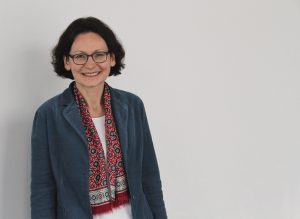Anne Eckhardt: “Strengthen Supervision – From Inside As Well”
The ENSI Board is committed to a strong, efficient and independent nuclear safety inspectorate that communicates openly. This is why it has simplified ENSI’s organisational structure and geared it to this guiding principle. The new organisational structure came into force on 1 September 2011.
 The safety of Switzerland’s nuclear plants is the result of work by people. People who research, act and inspect. But above all, people for whom safety is a living part of their everyday working procedures – especially in the nuclear power plants. Safety is constantly developing, through working relationships, cooperation and critical discussion. For example, recent years have seen ongoing upgrades to the safety technology in Swiss nuclear plants.
The safety of Switzerland’s nuclear plants is the result of work by people. People who research, act and inspect. But above all, people for whom safety is a living part of their everyday working procedures – especially in the nuclear power plants. Safety is constantly developing, through working relationships, cooperation and critical discussion. For example, recent years have seen ongoing upgrades to the safety technology in Swiss nuclear plants.
As the advocate of the general public, ENSI (the safety authority) is assigned an important role in maintaining and improving the safety of Switzerland’s nuclear plants. In order to accomplish this mission, the supervisory body itself must also continue to develop and must adapt its organisation to changing needs.
As long ago as 2000, politicians were thinking about strengthening the independence of the safety authority, which at that time was still known as the Principal Nuclear Safety Division (HSK). The HSK was part of the Swiss Federal Office of Energy (SFOE) in that period. In 2006, the Federal Council requested Parliament to make the HSK independent, as a public-law entity. 2009 marked the start of activities by the Swiss Federal Nuclear Safety Inspectorate. Since then, the Federal Government’s supervisory authority for nuclear safety and security in Swiss nuclear plants has been overseen by the ENSI Board. The ENSI Board reports directly to the Federal Council.
Soon after it commenced its activities, the ENSI Board commissioned an analysis of the management and organisation of ENSI. The focus was on ENSI’s communication strategy, and the analysis triggered measures to strengthen ENSI’s communication. In the following year, the ENSI Board elected Hans Wanner as the new Director of ENSI in succession to Ulrich Schmocker. By 2011, it had also designated two new members of the Executive Board:Felix Altorfer (waste management) and Rosa Sardella (systems).
In 2010, the ENSI Board tasked the Executive Board with a project aimed at optimising management and organisation. The objective of this project was to gear ENSI consistently to its new role as a public-law entity and to the challenges that the future would bring. The scope included the development of a new organisational structure. The Executive Board and employees of ENSI continued this project efficiently and with great dedication, despite the numerous challenges that have arisen in recent months.
The ENSI Board views ENSI as a learning organisation. Over the last four years, the Board has gained a great deal of persuasive and often impressive experience at ENSI as regards technical and management expertise, the commitment of the Executive Board and the employees, as well as the organisation of supervision. At the same time, it is convinced that ENSI must continue to examine itself, in particular after the experiences of Fukushima: Are we doing the right things in the right ways? Are we on the right path? For these reasons, a broad-based project that targets cultural change is currently under way at ENSI. This is because strength doesn’t just mean “flexing one’s muscles” but also, and most important of all, continuing to develop inner strength.
The accident at Fukushima has changed ENSI’s remit and its role. The general licence applications for new nuclear power plants have been suspended. The analysis of the accident in Japan and its background called for substantial resources. The objectives pursued by the ENSI Board in order to optimise ENSI’s management and organisation were largely confirmed during this period. This is also true of the new organisation: The areas of nuclear power plants, waste management and systems are now clearly geared to ENSI’s key tasks. This move supports the effectiveness and efficiency of supervision. The outside world is more clearly able to see who the key contacts are for issues relating to the safety of specific nuclear plants and waste management facilities. Through the systems area, the importance of research and international interchange is strengthened. This area also has the role of encouraging lateral thinking within ENSI.
The ENSI Board believes that dialogue with key stakeholder groups and the general public has an important part to play. This is why corporate communication (among other aspects) has been strengthened on an ongoing basis. A completely reconstructed presence on the internet signals ENSI’s intention to be a trustworthy point of contact for the general public to obtain first-hand information.
The ENSI Board appreciates interchange with those who express critical opinions; examples include the experience gained in recent months with the vigil in front of the ENSI building or representatives of individual parties and organisations that are critical of nuclear energy. This is because we are aware that it is people who shoulder the responsibility for the safety of Switzerland’s nuclear plants. Critical dialogue helps us to progress, and ensures that attention to – and awareness of – an effective safety culture are living realities.
Dr Anne Eckhardt
Chairwoman of the ENSI-Board

